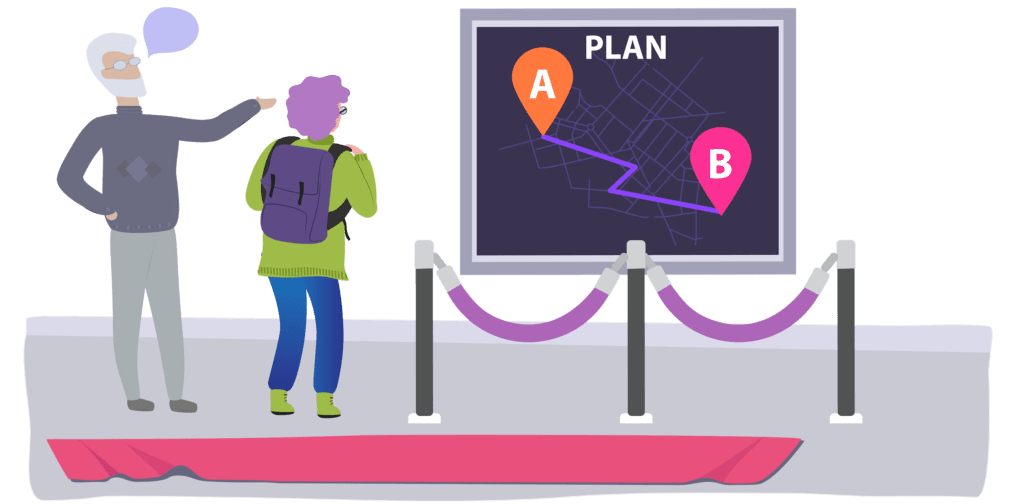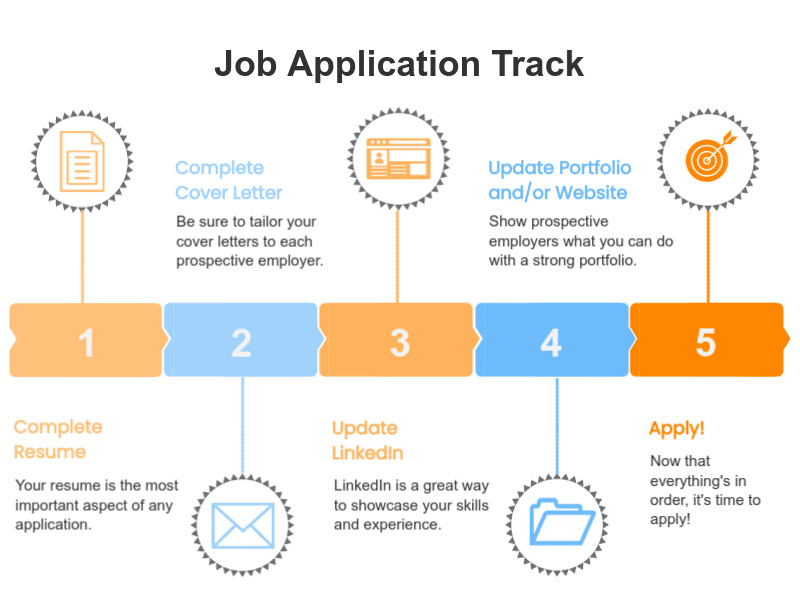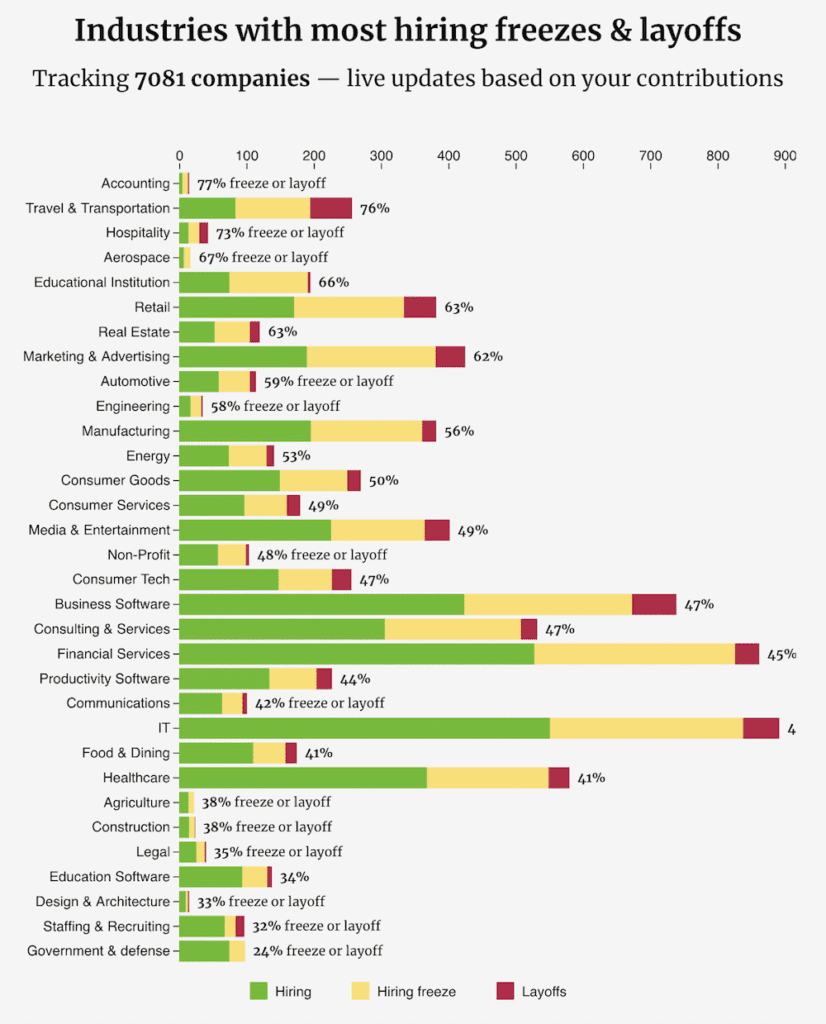This handbook is a crowdsourced list of top job search resources for people who have been laid off, furloughed or have lost their income due to COVID-19. This is meant to help those looking for jobs or a career transition. Our goal is to crowdsource career coaching options, quality resources for people applying to jobs and to create the most comprehensive list of companies hiring during this time. We want to provide an edge in the job search process.

How to Use This Guide
Coronavirus has instantly put over 30 million people out of work. Many more have been furloughed, and everyone else asking themselves: is my job safe?
As sudden change leads to uncertainty, our goal at Career Karma is to give you a roadmap to navigate your job search. This guide is filled with advice, actionable strategies, and job search tactics to help you land your next role.
If you still have your job, this guide is going to give you numerous resources to level up your skill set and gain more leverage. Now is the best time to invest in yourself.
We assembled this guide based on strategies that have helped thousands of Career Karma members expand their skill sets or transition into completely new careers, often doubling their salaries.
That said, this guide is not a magic pill.
It will give you a roadmap, but we expect you to find the time to push yourself out of your comfort zone to put this plan into action. Fortunately, you won’t have to do it on your own— we have a whole community of people who are in the same position to help you.
Our goal is to show you a way through the backdoor into your next role by building relationships with decision makers at hiring companies and positioning yourself as the perfect fit for the job.
In the midst of the COVID-19 uncertainty, we know that with a community and support system behind you, there is no way you won’t succeed.
This guide is not behind a paywall and is meant to be completely free. All we ask from you is that you share resources on Career Karma that you found helpful, your experience with your peers, and your successes once you find your next job.
If you find this guide helpful, please help by sharing it on LinkedIn to ensure this advice reaches people that need it.

Finding a Job is Hard
Close to 30 Million people in the United States have lost their jobs. Millions more around the world are being affected during these times and this is not going to be over soon. Your job right now is to prepare for your job search and ensure you can be a step ahead of all the other people who are looking for their next opportunity. Losing a job can be hard, graduating into a jobless market can be especially discerning. The uncertainty of it all can take a toll on your mental health, overall confidence and positive outlook on your job search journey. This is why you have to accept the reality and set your best foot forward.
The process of job searching starts with your attitude. We have curated some content below to help you stay hopeful, positive and mindful during the upcoming journey. It will be tough but the Career Karma Community is here to help you!
Confidence and Positivity 101
While we may know that it’s usually helpful for everyone around to remain positive, it’s sometimes easier said than done. There are a few things to realize and remember about the COVID-19 pandemic that may help you guide your mindset before your job search, and during your interviews.
Close to 30 Million People Are In the Same Boat
You should not think any less of yourself. Nobody could have predicted the enormous impact this has had so chin up! These sudden, rapid changes in the way we live, coupled with uncertainty, can feel overwhelming and is completely normal.
It Won’t Be This Way Forever
This is a difficult time, but it is just that — a time.
Recognize What You’re Doing Well
It may be tough right now, but you have managed some things really well. Think about the physical, logistical, mental and emotional struggles you may have encountered in the last month or two, and the good—even great—way you approached and handled those challenges.
Remind Yourself What’s Good In Your Life
Some circumstances right now may be hard to change, or contribute to your feeling helpless. But there are other things in your life that are good and inspire gratitude. Making a list of the good things that you appreciate—large or small—can help shift your focus in a positive direction.
Resources and Talks to Help With Your Mindset
Here are a few videos and resources to help you with your confidence and to stay positive!
- A simple trick to improve positive thinking – TED Talk – 10 Minutes
- There is more to life than being happy – TED Talk – 12 Minutes
- 3 Tips to boost your confidence – TED Talk – 4 Minutes
- What is imposter syndrome and how can we combat it? – TED Talk – 4 Minutes
- 10 Inspiring Talks To Boost Your Self Confidence

Is Finding a Job The Right Thing For Me Right Now?
Before we jump into the section about strategies for the job search, first you have to ask yourself some important questions.
What Do I Want Out of My Next Job?
You may not feel like you are in a position to choose, but it couldn’t be further from the truth.
If you ever talk to anyone who has been fired, they will tell you that it was the best thing that happened to them because it pushed them outside their comfort zone.
They no longer had an excuse to remain complacent. Without a job, they were forced to do the unpleasant things that eventually led them towards a place that was better than where they were before.
If you loved your previous role. Your manager. Your company and you felt satisfied then you can skip this section and just jump to the next part about the job search.
Have you ever wondered to yourself…
- Why am I not getting paid more?
- When did I stop being excited about what I do?
- How do I make a
goodgreat living and not feel like I’m working? - I really can do a better job than my manager but I’m stuck reporting to them
- I always had a passion for X, but I ended up working in Y because life happened
If any of the above are true, this is a perfect opportunity to do two very important things simultaneously:
- Take this time to find your next job.
- Take advantage of the time you have to pursue your true passion and turn it into your means of living!
Below, we are going to outline the approach to discover and explore a new career or a new role.

"Career Karma entered my life when I needed it most and quickly helped me match with a bootcamp. Two months after graduating, I found my dream job that aligned with my values and goals in life!"
Venus, Software Engineer at Rockbot
Get to Know Yourself and Your Needs
In this section, we’re going to cover the approach to discover either an adjacent role that could pay you more or find a new career path that will help you reach your goals.
Our advice is to start out by asking yourself:
- When it comes to careers, whom do I admire and what is their job?
- Who do I know that seems to be happy in their careers?
- What role sounded interesting when I was younger but I never pursued?
- How much money do I need to make in my next role for me to be happy?
- How much money do I need to make for me to meet my own and my family’s basic needs?
The first step is to find clues about your own interests and careers that are out there, as well as to begin translating your passions into roles that you would enjoy.
As coaches and founders at Career Karma, we meet so many people each day who don’t even know about roles that they would be great at and the careers they can have in 12 months or fewer. Most people gauge what successful careers are based on careers of their families, their neighbors, or their friends.
We want to push you beyond that.
Today, you can leverage Google, Twitter, LinkedIn, and other resources to research careers, salary information, and advice on how to get the right skills to perform those jobs.
This brings us to the next point, research.
Research Careers by Building Relationships
Below, we will discuss in more detail how to reach out to people and build connections when you are actively job searching. But the same strategies could be applied when you’re figuring out your next career.
The best way to know is to actually speak to people who are performing those roles. Let’s say you always wanted to become a web developer…
Steps to Take:
- Google Search: Start by searching Google for salary information, job descriptions, and career outlooks for web development.
- Reach Out: Use Career Karma, LinkedIn, and Twitter to find web developers and get in touch with them.
- Nurture These Connections: Once you’ve connected with some folks in the field, start building a relationship. Prepare ahead of time for your conversations with them, but be yourself.
- Listen: Most importantly, take their advice. Also, be sure to follow up a few days later and update them on your decisions.
- Ask Direct Questions:
- If you had to start all over again, what do you wish you would have known about this career?
- How do people usually land these jobs?
- What are the pros and cons of this career path?
- Would you still be a developer if you could do it again?

Prep Work
The job search can be overwhelming, and it’s all too easy to feel like you’re drowning once you’re in the weeds of phone interviews, tailored resumes, and vague job descriptions.
You might think that your job search starts when you find an open role that you want to apply for. However, there are some prior tasks you should take care of before actually submitting an application.
Your strategy can be as simple or as detailed as you’d like. But, having some sort of roadmap in place will both keep you accountable and help you stay on track as you continue through the process.
Below we will provide information and some helpful tools to help you get started. First thing is first. Your resume.
Crafting a Great Resume
There are numerous resources you will find online that point you towards crafting or creating a resume. Unfortunately, many of these resources tend to forget the fact that the vast majority of the resumes are never initially reviewed by a human. So making your resume stand out or unique can actually hurt your chances.
Of course, there are always exceptions. If you are a designer for example, your resume should reflect the fact that you are a designer through a unique layout or typography. However, this is for your “public facing” resume. This resume is what you distribute directly to your connections, recruiters, friends etc but you should NOT apply online with this resume. The reason: ATS or Applicant Tracking Systems. Let’s make sure your resume is ATS ready for these systems and then you can craft a unique resume you can distribute as your public facing resume.
ATS: What is it?
Applicant tracking systems are used by companies to assist with recruitment and hiring processes. Each system offers a different combination and scope of features, but ATS in general are primarily used to help hiring companies collect, organize, and filter applicants. Job seekers who submit their resume and job application through an online form are interacting with an ATS.
Here’s a great article outlining what you need to know.
Some Quick Tips for Your Resume
Structure
- Name
- Logistics: Current City, Phone, Email and Full linked in URL
- Skills: A list of skills that match the type of job you are pursuing
- Professional Experience: 3-4 relevant (and recent) job experiences
- Education: Type of degree or highest level of education
- Other: Certifications, Bootcamps, Specialized Training
Content
Use other companies’ job descriptions as reference, especially those in your industry, for ideas of what the content in your resume should address. For example, if you are looking for project management jobs, look at several job descriptions online of current job listings and start to identify the trend. If your resume can emulate very similar information, and you include the key words and skills in your skills section, you will increase your chances of getting that initial call.
Length: 1 Page? 2 Pages?
You will find very conflicting information regarding this topic online. If you are optimizing your resume for the ATS bots it really does not matter if your resume is 1 or 2 pages. Yes it is true, recruiters and hiring managers will only scan your resume very quickly but think about their experience. Long are the days in which they printed the resumes and scanned through them. If you try to push all your content into one page by making the font very small and the layout unreadable, then you are straining the experience they have reading your resume.
Remember, this resume has to make it through the ATS, and these bots are not advanced enough to understand your unique layout. So if the resume is two pages, it is OK!
Keep each job experience description under 5 bullet points, no more than 2 lines per bullet.
For your public facing resume that you share with your network, try to keep it at one page with your unique layout and typography.
Remember, there is no such thing as a perfect resume. What you will walk away with after this initial process is the first iteration. Treat yourself like an iterative product and your resume will get better and better. Use the Career Karma community to help and support you!
More Resume Resources
- Got My Resume Through an Applicant Tracking System (ATS) with a 95% Success Rate!
- Carrd – Simple, free, fully responsive one-page sites for pretty much anything
- John Smith (Demo)
- Real Front End Developer Resume Examples
- Free Real Professional Resume Samples
Crafting a Great Cover Letter
Do you really need a cover letter if it is not required when you’re applying? YES! It’s better to have one than not, even if it is a general cover letter.
Further, when it comes to writing a cover letter, there is a heated debate between writing a specific cover letter for each job VS writing a generic cover letter that encompasses and highlights the right experience for the job you are applying to.
During times of high unemployment, you have to think about the hiring manager that MAY read your cover letter. They are receiving a greater number of resumes and cover letters so you really have to be straightforward and to the point. There are benefits to both strategies and it is up to you to use the strategy that makes the most sense to your job search.
In general you want to follow the suggestions below for a great cover letter:
- Make the header of your cover letter the same as your resume. You are creating an omni-channel experience for the person reviewing your resume and cover letter, so your branding has to be the same on both resume and cover letter. Use the same font, same colors, same style.
- Open with a professional salutation directed at the hiring manager. “Dear Hiring Manager.” If you happen to know the name of the hiring manager, include it. If not, it is ok to address it to the “Hiring Manager”.
- First paragraph is all about hard skills. It should highlight why you would make a great (UX designer, Project Manager, Account Manager etc.). 4-5 sentences highlighting your experience and how you can help them solve the problems they are experiencing. How you add value!
- Second Paragraph should speak to your soft skills. “I am the office mom, as I truly care about my co-workers. I hosted a monthly wellbeing seminar.” Something that makes you human.
- Your closing statement should be a call to action. “I would love to speak to you next week and highlight why I would be great for this position.”
Your cover letter, especially during the COVID crisis, should be short and very strategic.
More Cover Letter Resources
- How To Write An INCREDIBLE Cover Letter In 2020
- Writing a General Purpose Cover Letter: Tips, Template and Examples
- 7 Key Elements of a Successful Cover Letter
- How to Format a Cover Letter
Crafting a Personal Website or Portfolio
Although creating a personal site or portafolio is not a necessity for many people looking for a position right now it may be something that sets you apart from the competition. It is another way to show off your skills or provide more context into who you are and what you have accomplished professionally and personally. It may also serve as an avenue to showcase your projects and other areas of interest that would otherwise be overlooked during an interview or in a resume or cover letter.
If you are a coding bootcamp graduate or an engineer looking for your next gig it is important for you to showcase your skills through a personal project or a site that highlights a collection of your projects. Additionally if you are a designer, it is imperative that you create a personal site or in this case a portfolio to highlight some of the projects you have worked on. Don’t forget to highlight your coding projects on Career Karma.
There are many ways to showcase your work but here are some sites that can help you get started with templates and easy to use interfaces to create your own content.
More Portfolio Resources
Having an updated and active LinkedIn profile is imperative to your job search during these times. It is a great resource for you and a great way to complement your applications. In fact, many online applications provide a field for your LinkedIn URL so follow the suggestions below to ensure you have a Job Search Ready profile.
- Start with a clear picture of yourself. This should be you, front facing, and preferably smiling! Here are a few examples.
- Add the same bullets from your resume on your LinkedIn profile. The same search mechanism is used by recruiters on LinkedIn so this will increase your exposure.
- Remove your Bio/Summary if you have one. Avoid fluffy language and if you do have a Bio keep it to 2-3 sentences. You will never have a bio that speaks to everyone. Don’t give recruiters a reason to discard your profile.
- Make sure to change your LinkedIn headline to the title of the job you are looking for. This will make sure you are included in the searches performed by recruiters.
- Add the Company About Us paragraph(s) under the titles. Do that even for positions that you were promoted in and have two positions listed for the same company. This provides context to recruiters and hiring managers. If possible, add the Icons to the companies that you worked at as well. It gives recruiters a sense of legitimacy to your background.
- Update all 50 of the available skills to match the job description of the jobs you are looking for. Make sure these match your skills on your resume. Remove all the skills that are not related to the job you are pursuing!
- Do your best to get your connection numbers to 500+ as this shows you are an active member of the network and allows you to connect with several people who may help with referrals or key connections.

Applying
So now that you have put time and effort into your branding. You are ready to start applying. But where, how and which companies should you apply to? Below we show you some insights we have curated specifically for people like you. Use these resources to help your application strategy. Keep in mind however, that applying to jobs and companies should not be your only strategy. More on networking during COVID and other strategies later in the guide.
Curated Lists of Companies Hiring NOW
There are several resources available and we will be updating our resources on the Coronavirus Job Help discussion on Career Karma. However, below is a list of sites with updated information for companies currently hiring. Use this to target companies in your search that you know are currently hiring.
Conversely, you may also want to check these lists for companies that are doing layoffs and stay up to date with this information.
- [LIVE] Candor List of Companies Hiring (Candor)
- Who’s Still Hiring During COVID-19? (TeamBlind)
- Start Up Companies Hiring – Live updates
- Canadian COVID 19 List of Hiring Companies
- Who’s Still Hiring (Levels.fyi)
- Companies Still Hiring (Coda.io)
- Startups Actively Hiring During COVID-19 (Jai Sajnani)
- LA Tech (+ Remote) Companies & Startups Hiring During the Coronavirus Outbreak
- Companies Hiring and Open Roles (Torch Talent Connect)
- 1761 Jobs From Companies Hiring Remotely (Remote Weekly)
- Here’s who’s hiring right now (Andrew Seaman)
- Remote Apps (Product Hunt)
- Websites to Find Work From Home Jobs Hiring During COVID-19 (Forbes)
Industries Most Likely to Hire Right Now
There are obvious industries that may take a while to bounce back from this economic downturn but there are, in fact, companies still hiring and even thriving through these times. As you start to decide or guide your strategy for applying, keep an eye on this list and the other sources below to help guide which industries you may have better chances with during your search.

Other sources that answer this question with updated information:
- Industries Who Are Still Hiring (Forbes)
- COVID-19 Affected Industries (VerticalIQ)
- COVID-19: Job Market Insights (Cultivated Culture)
Best Ways to Apply
The time has come, and you are looking for the best strategy to apply for jobs. What’s the best way to apply for a job? How you apply for jobs depends on the type of position you are seeking and how the company accepts applications.
1. Go Direct!
In many cases, you’ll be able to apply online through services like LinkedIn, Indeed and Glassdoor, but the preferred and recommended way is to apply directly on the company website. You can use sites like LinkedIn and Monster to source the jobs and compile a list of companies hiring for those positions you are interested in but you should then go to the company website and apply through there.
The reason? Companies prioritize their own career site because they have to pay for each application they review from services like Indeed and monster.com. This means their priority will always be their own source.
So, compile the list of companies that are hiring for those positions in your area → go to the career site and look for the role → Apply directly on their career site. Yes, it may be easier sometimes or even only available to apply on external services but you will be at an advantage if you go direct!
2. Apply on Job Sites
If you cannot or find it better strategically to apply using a job site there is no problem! There are several job sites that provide a great service and during these times you should maximize your options. Here is a list of some job application sites (in no particular order) for you to use as a resource.
- Monster
- Indeed
- Glassdoor
- Builtin{city}.com
- The Muse
- Angel.co
- whoishiring.io
- SimplyHired
- ZipRecruiter
- College Recruiter
- Robert Half

Interviewing
So you’ve got your first scheduled interview and are unsure of what to expect? Interviewing seems like a daunting task, but it doest have to be. Just understand that it is a simple process for the company to learn about you and for you to learn about the company.
In general, the interview is to verify the information you provided on your application and resume. It also helps you and the company gain additional information. This means you have another opportunity to highlight your past experiences and the company can also explain or give you further insight into the job and responsibilities of the job. It ultimately gives you and the company the opportunity to set a common ground of understanding of your experience and the opportunity presented by the company.
There are several other aspects that get evaluated during the different interviews you will go through in the process. Your manner, personality, approachability, professionalism is all being taken into account so make sure you are ready to tackle this challenge.
Below we outline some tips when it comes to interviewing during COVID-19 times. Please take these into consideration and ensure you are ready to tackle the different stages of the interview process.
Phone Interviews Tips and Prep
When you’re interviewing via phone, you’re going to have to work even harder to make sure you are coming off as personable, capable, and above all, a great candidate for this role.
Depending on the job title as well you may be doing a couple of phone interviews before you ever see anyone’s face. So here are some of the things you should be ready for in your first interview:
- Usually one interviewer only – not a group
- Varying “interviewer styles” (ex. casual or formal)
- Be ready to answer: “Tell me about yourself” or “Walk me through your background”
- Housekeeping questions (ex. availability, travel, etc.)
- Potential salary expectation discussion
- A few “odd-ball” questions – “Why us? Why did you leave x company?”
- No “next interview” promises
The last point is key. It’s quite rare that you will get an offer of an in-person interview at the end of a phone call. And remember, people are looking for reasons NOT to hire you and eliminate you so be sharp and ready.
Here are some other tips to help you convert those interviews into in person interviews or during this time into video interviews:
- Take it as seriously as an in person interview. Yes, shower and dress confidently.
- Focus and cut out all distractions – This can be hard during COVID-19 but go in a closet if you have to and use your headphones.
- Do some research before the interview – Know enough about the company and who is interviewing you to anticipate what topics to cover.
- Listen and don’t dominate the conversation – But also do not let them dictate every question or overall direction of the interview
- Prepare your own “cheat sheet” – Please take advantage of this and do not wing it!
- Slow down and take your time – If you do not understand a question, clarify and take your time while answering.
- Send a thank you email!
- If you can, direct them to your personal website or a specific project you are really passionate about. This can highlight your skills and show what you’re capable of!
Video Call Interviews Tips and Prep
As a way to help slow the spread of coronavirus (COVID-19), many companies are altering their recruiting efforts to practice social distancing. In lieu of face-to-face interviewing, many job interviews are now being conducted over video.
So you’ve made it to this call. Follow the advice for you phone interview but realize this is probably the toughest part of the interview process. The second round is usually with the hiring manager so this person could be your potential boss. You want to be ready for this interview and above all have the right setting around you for this interview.
Tips for Video Interviews:
- This person could possibly be your boss so wow them with your research and astute questions.
- Do not fall for the Q-A-Q-A-Q-A (Question – Answer) structure. Ask the interviewer a question after they ask you one. This removed the Q&A cadence.
- Do your research on the company and sprinkle some company knowledge.
- If you were referred or know someone at the company this is the time to mention it!
- Be confident, clear and concise and practice in front of a mirror or record yourself answering some hypothetical questions to ensure you are ready.
- Make sure your surroundings are optimized for a video call. See tips below.
- Test your video and sound before the call! If you have roommates, family or others who you share your internet connection with, ask them to stop the Netflix binge during your call.
- If you want to take notes during the call. Let the interviewer know so they do not assume you are distracted when you look off screen. No typing on your keyboard during the call!
Here are some further tips to prep you for your video interview, including, what to do if things go wrong:
- How to look your best on a video call (Video)
- Video Interview Guide: Tips for a Successful Interview
- How to look your best on a video call
- Video Interview Tips
Panel Interviews During COVID-19
What is a panel interview anyway??
A panel interview is a job interview in which an applicant answers questions from a group of people who then make the hiring decision. Hiring Managers use panel interviews to gain perspective from other people on the team you will be working with. These types of interviews reduce the risk of making a bad hire. The panel’s goal is to make the best hiring decision possible given the information available about the position and the finalists. Including you!
Since each panel member brings a different set of experiences, thoughts, beliefs, and biases to the interview process, the members’ strengths tend to compensate for each others’ weaknesses. In the most effective panels, members work well with one another while being unafraid to respectfully challenge each other’s judgments and assertions about your candidacy.
Because of COVID-19 companies have shifted their strategy to video panel interviews and the way these interviews are performed really depends on the company, the team you are interviewing for and the company size. You may have a separate call with each one of the interviewers or you may have a conference call with everyone so be prepared for both scenarios. However, we did find some trends and have some suggestions for you below:
- Keep in mind the pointers we provided to look great on a video call above.
- When you receive an invitation to a panel interview, respond right away if they ask you to confirm your availability.
- Do research on the interviewers – You should know their roles within the company. If the company has not supplied details on all interviewers, ask!
- Have at least one question prepared for each person.
- Try to engage with all interviewers, and don’t just focus on the most outgoing participant. You don’t know who’s input will be the most important in the hiring decision
- Ask A LOT of questions throughout. Do not wait until the end to ask questions. When they ask you a question, fire one back after your answer. If they ask if you have more questions, ask more!
- Use the insights from each call (if they are separate) to ask more targeted questions with the next interviewer.
- Be mindful of your time with each person if you are having separate calls and do periodic check ins with the interviewer.
- The most important thing to remember: This should feel like a conversation. These are your potential future team members so get them to like you! Be nice, smile and wow them with your awesome company insights and questions!
- Always follow up with a Thank You email through the recruiter or directly to each member if you have their email address. Below are some templates you can use.
Further Panel Interview Resources
- How to Pass a PANEL INTERVIEW with ALL the RIGHT ANSWERS (Video)
- 7 Tips for a Successful Panel Interview
- 9 Things To Never Do in a Panel Interview
- TOP 7 Interview Questions and Answers (PASS GUARANTEED!)
Coding Interview Tips
For most software developers, technical interviews are one of the hardest steps in the interview process. Each step has a particular purpose:
- Phone screens are about identifying general fit.
- Behavioral interviews with the hiring manager or panel ensure you have a baseline of interpersonal skills
- Technical interviews evaluate how well your programming skills address the company’s needs and the role’s responsibilities.
Whether you are an experienced engineer or a recent bootcamp grad, your interview track in general will be the same. The complexity of the problems you have to solve may increase with seniority but in general terms you will have to prepare diligently for the technical aspects of the interview process.
If resumes are about telling someone what you can do your coding challenge or technical interviews are about showing that you can do what you claim on your resume. It is imperative to use this strategy:
- Understand the problem you are being given.
- Formulate a solution, explain it and walk them through it.
- Execute it. This sounds easy, but to get to this level you need to prepare and practice.
So during COVID-19, how are these technical interview or coding challenges different? In general, you will have 4-5 types of Exercises or Assignments.
- Initial Coding Challenge
- Take Home Assignment
- Live Coding Exercise
- Design Challenge (Depending on the role)
- General Knowledge Test or Quiz
Initial Coding Challenges
Some companies, as part of the initial application process, ask you to complete and submit a coding challenge. This at times may be timed and some even monitor your screen activity to ensure you are not just copying code. This is usually a shorter challenge but helps recruiters sort some candidates.
Take Home Assignments
This usually comes after your initial phone screen with the recruiter. So if you get one try your best to complete it! Companies will generally give you a specific amount of time to complete (submit your code within three or four days) or time limit (complete the task in no more than 4 hours). In either case, give yourself time to review and edit your work, just as you would if you were writing an important report or sending a sensitive email.
A note to remember is that you will probably have a call scheduled with the hiring manager or an engineer to whom you will present your code. This is being performed via video calls during COVID-19 so be ready to share your screen and hop on a video call.
Live Coding Exercise
This is almost a guaranteed step in your interview process. Traditionally a company will have you come in and code along with another engineer but this is now changed to video calls and screen sharing software. Basically you write working code within 30 or 40 minutes from a prescribed problem they presented you with. Think of this as a pair programming exercise where you are talking your way through the solution and code. The interviewer may be filling in some blanks or will answer some questions you may have.
Be ready to share your screen and to not have direct access to your favorite sites like stack overflow. You may use technical documentation and in fact it may be expected to check your work but keep in mind that the ultimate solution is not the ultimate goal of this interview. Your approach, communication skills and ability to react to uncomfortable situations is what the company is looking for.
Design Challenge (Depending on the role)
Depending on the company the type of products they build and the general tech stack, you may be asked to whiteboard or come up with a high level design solution. The point here is not to write full working code but to be able to explain some technical decisions you make as an engineer to make a specific product or software solution.
You don’t need to be an expert at database administration, UI/UX, or low-latency networking. But as a developer, you should be able to speak intelligently about the full stack of an application or the specifics you are interviewing for (back-end, front-end, web, native, full-stack etc..)
General Knowledge Test or Quiz
At some companies, it doesn’t matter if you have 6 months of experience or 10 years under your belt. It’s all about the fundamentals of software engineering. There’s nothing more fundamental than computer science or specific questions about the tech stack at that company.
Language-specific questions come up most often at smaller companies, where the tech stack is narrow and new hires have to hit the ground running from day one. You may say, “can’t I just look these things up? everything is open book nowadays”. While this is true, being able to answer these questions on your call can really help set you apart. This is especially true for candidates with non-traditional backgrounds. Including developers who are self-taught, bootcamp graduates who transitioned into tech. This shows the interviewer(s) that you are interested in and knowledgeable about foundational aspects of software engineering.
More Technical Interview Resources
- Tech Interviews
- Technical Interviews: The Ultimate Guide
- Top Software Engineer Interview Questions
- Data Engineer Interview Questions You’re Sure to Encounter
- The Most Popular Computer Science Interview Questions
- DevOps Interview Questions
- The Top C++ Interview Questions in 2020
- Most Popular Angular Interview Questions
- Questions To Ask At a Second Interview (Video)
- Sample Whiteboard Coding Interview
- Top 3 Tips to Prepare for an Interview

Dealing with Rejection
This is an unfortunate but inevitable step in the trajectory to getting to a new job or career. You will receive hundreds or email rejections stating “we decided to move forward with other candidates at this time” or similar phrasing. These are usually automated messages because your resume did not make it past the Applicant Tracking System.
At other times you will be rejected after you start your interview track with a company. Being rejected after an extensive interview process can be tough and can negatively impact the momentum of your transition process and application process. This can ultimately lead you to be less motivated in your search which can eat away at your confidence. Most people will eventually end up in a state of job search negativity and hopelessness. But not you!
Here are some tips to get you to accept that rejection is just a part of the process and is not a personal attack on your career choices, experience and self.
- Do NOT personalize rejection! – We love to tell ourselves stories but don’t project thoughts, opinions or impressions onto the employer that they may not even have. More often than not rejection is not about you at all. A rational business reason was likely the basis for your rejection.
- Use this as a learning experience – Reflect on the things that went well but more importantly on the things that you knew went badly on the interview. Remeber those and adapt your interview strategy accordingly. This feedback loop is crusion to your search! A rejection = feedback for improvement.
- If possible, ask the interviewer for feedback – Many times companies appreciate you requesting feedback as it shows you want to improve and may leave the door open for opportunities at a later date.
- Give yourself several options – Even if you think an interview process with company A is going great, you should have Company B, C D and F also in your mind. Do not become fixated on one job prospect. If it doesn’t work out you have other options.
- You were not the only person rejected for the role. Move on from the rejection quickly to remain positive during your search. The goal is to accept this is just another step in the process!
Other Resources
- Nine Tips to Deal with Job Search Rejection
- 8 Lessons You Can Learn From a Job Interview Rejection
- How to Handle Rejection After an Interview
- How to Deal with Rejection (From a Job) – Video (Not an endorsement)
- The Surprising Truth about Rejection (Video)
Job Offers
Congratulations! You have landed an offer of employment, an offer for an internship or some type of offer! You achieved your goal. There are some things you need to be mindful of before you sign and accept the offer.
During COVID-19, there has been a trend of rescinded job offers. This means companies have pulled back their offers made to potential employees after the employees have signed the offer. This is absolutely legal and unfortunately happens more often nowadays. This means, your job search does not stop when you land an offer! You keep going. These are very uncertain times and companies are working with unreliable budgets in a very hostile hiring environment so be mindful of the fact that receiving an offer does not mean you have the job 100% in the bag.
Additionally you may want to review and understand some of the salary stipulations and benefits before you sign and send over your signed offer. At times, you may also want to review your options and if possible negotiate better salary terms or benefits. Be mindful of the times however, do not stall a decision for several days. Companies, usually, will provide 2 – 5 business days for you to accept the offer so communicate with them as you evaluate your options.
Salary, Benefits, and Insights
When you receive your offer you want to make sure you clearly understand the following to make an educated and informed decision on your future career with this company or organization:
- Salary – what is the base salary compensation for the job/internship/opportunity.
- Bonus Structure – If available make sure you know and understand how it works.
- Opportunity for Growth – Are the opportunities for growth within the company or team? Is that important to you?
- Insurance Benefits – Do they offer Health Insurance for you and your family? Dental, Vision, life and Disability Insurance? Be sure to ask how much the company pays and how much you would be expected to pay. Ask for a rough estimate or idea if possible.
- Tuition Reimbursement – Some companies offer this as part of their benefits but be sure to clarify what this means if this is a big reason for going to this company.
- Retirement Benefits – What plan if any do they adhere to and what are the available plans available to your role.
- Stock options – Depending on the size of the company and organization this may be made available to you. Understand what this means as some companies may offer this as an upsell and may decrease your yearly base salary in exchange for a number of stock options.
- Time Off – Vacation, Holidays, Sick time, Family leave? The recruiter has this available and may vary based on seniority. You want to know where you stand.
- Work From Home Opportunities – Right now everyone is starting a remote job (for the most part) but once things return to some level of normality. Will you be able to work from home? How many days?
- Any other Perks – Understand what they mean and weigh them in importance as they make sense to you. Same may include paid child care services, phone plan, stipend for work related expenditures etc.
Negotiation
Negotiating an offer may feel uncomfortable, but a little discomfort is worth it. This is your best chance to increase your salary and improve the conditions of your new job. Once you have accepted a job, you lose your leveraging power. Be mindful of the times and realize that you may not have much leverage as the unemployment rate reaches record high levels. Be cautious and cognizant of these facts. However, If you feel you are being short handed you can use information in your favor and do your research. Do not request a new offer simply make suggestions and ask what is possible. Here is a list of topics that may be on the negotiating table.
- Salary
- Job title
- Start date
- Vacation/PTO
- Relocation expenses
- Memberships, association dues, subscriptions
- Signing bonus, bonuses
- Laptop, mobile phone, home office technology
- Auto (car, mileage)
- Flex-time/job share schedule
- Training/re-certification costs
- Remote or virtual work
- Severance provisions
- Terms of contractual relationship
- Stock options
Remember, do not attempt to ask for more money or any items on your list before you have received an offer. Smile and be approachable throughout the process. It also reflects how you handle stress on the job! And above all get EVERYTHING in writing. When all is said and done, be sure you get the agreed terms in a document signed by yourself and the hiring manager or company representative.
Here are some other resources to help you navigate this step in your process:
- 15 Rules for Negotiating a Job Offer
- How to Negotiate Your Job Offer Like a Boss
- How to Negotiate Your Salary
- Salary Negotiation: “They’re telling me the offer has no flexibility,” (Video)
- 6 Things to Negotiate for BESIDES Salary (Video)

Mental Health
We are experiencing unprecedented times. We are in an extremely emotionally demanding environment and as you go through your job search you will have to explore ways to keep your mind at ease and your overall mental health at ease.
We surveyed people affected by the COVID-19 coronavirus who are in the job hunt. We wanted to know what was the thing that was the most worrisome? After finding a job, which ranked as the #1 worry, mental health was the second most prevalent topic on people’s mind during this time.
Here are numerous resources to help you come with the stress, changes and instability brought forth by this pandemic. Remember, you have a community at Career Karma to help you through your transition and changes in your career.
Mental Health Resources
- Mental Health and Coping During COVID-19 – CDC
- National Alliance of Mental Illness COVID-19 Guide
- COVID-19 and your mental health
- https://mhanational.org/covid19
- The Mental Health Consequences of COVID-19 and Physical Distancing
- Stop, Breathe & Think | Guided Meditations & Mindfulness
- 7 Cups: Online Therapy & Free Counseling, Someone To Talk To
- Box Breathing: Techniques, Benefits, GIF, and More
- What’s Up? – A Mental Health App on the App Store
- notOK app
- National Suicide Prevention Lifeline
- Coronavirus: Mental Health and Wellness During the COVID-19 Pandemic (Video)
- Coronavirus: how to cope with anxiety and self-isolation (Video)
- Girls’ Night In|Free Meditation
Follow Career Karma for More Great Resources
About us: Career Karma is a platform designed to help job seekers find, research, and connect with job training programs to advance their careers. Learn about the CK publication.








